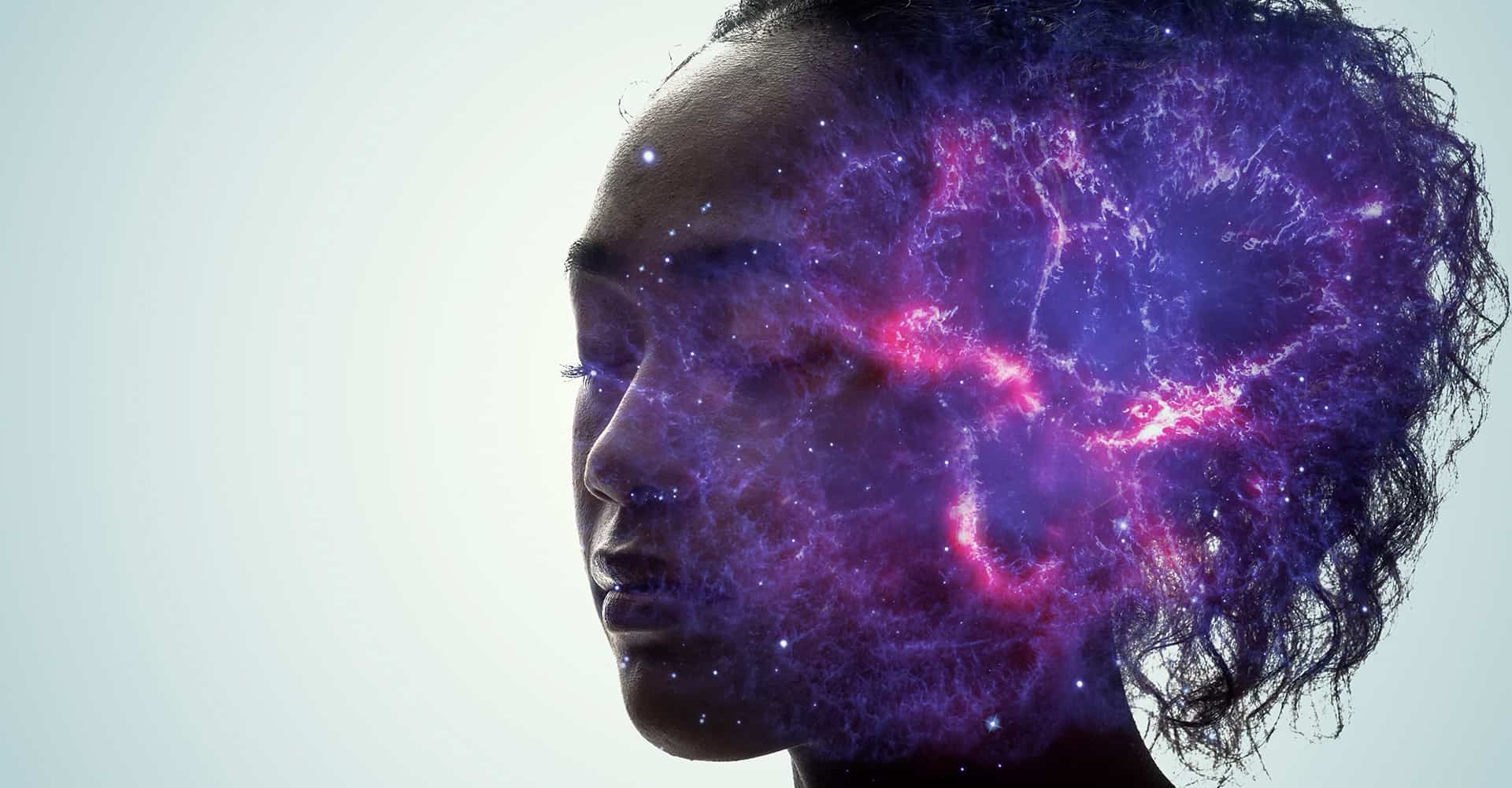Ketamine therapy is a groundbreaking treatment that has been shown to have a wide range of benefits for a variety of mental and physical health conditions. Ketamine has been proven to be particularly effective in treating the following:
- Treatment-resistant depression and anxiety
- Post-traumatic stress disorder (PTSD)
- Chronic pain
- Alcoholism
- Addiction
- Eating disorders
- Suicidal ideation
- Migraine headaches
- Traumas (emotional and childhood)
Clinical trials for the use of ketamine to treat neurological disorders such as Parkinson’s and Amyotrophic Lateral Sclerosis (ALS) are also currently underway.
In this blog post, we will explore the research and statistics that support the use of ketamine therapy as a novel treatment for these conditions.
Ketamine and Depression
Depression is on the rise, affecting up to 16 million U.S. adults each year. Almost 50% of depression sufferers are treatment-resistant. Ketamine therapy has been found to be highly effective in treating depression, especially in those who traditional treatment methods have failed.
A study published in the Journal of Clinical Psychiatry found that 70% of participants with treatment-resistant depression who received ketamine therapy had a significant reduction in their symptoms within 24 hours of treatment.
Another study, published in the American Journal of Psychiatry, found that ketamine therapy resulted in a rapid and sustained improvement in symptoms of depression, with effects lasting up to two weeks.
Let’s compare ketamine to traditional treatments of depression using antidepressants:
- Ketamine therapy is a fast-acting treatment that can provide symptom relief within hours, while traditional antidepressants can take weeks or months to take effect.
- While traditional antidepressants target the brain’s serotonin levels, ketamine works by modulating glutamate, the most excitatory neurotransmitter in the brain. Chronic and traumatic stress can cause an excess in glutamate levels. Excess glutamate is a factor in mental health conditions such as depression and anxiety, as well as neurological diseases such as Parkinson’s, Multiple Sclerosis and ALS.
- Research indicates that ketamine is a safe, effective, and sustained antidepressant with a significantly higher success rate than traditional antidepressants. Just one treatment cycle can lead to lasting symptom remission.
- Ketamine therapy has minimal side effects, compared to antidepressants, which often come with a long list of negative side effects including weight gain, lethargy, and loss of libido.
Even though research has been ongoing for the last 20+ years, ketamine therapy is just now gaining popularity as an encouraging tool in the fight against depression.
Ketamine for Anxiety
According to a 2022 poll by statista.com, a whopping 32% of U.S. adults reported symptoms of an anxiety disorder. During the pandemic, data revealed that 20.5% of youth worldwide struggled with anxiety symptoms. This number almost doubled from 2012. There is no question that Americans, young and old, are suffering. The great news is ketamine can help!
A study published in the Journal of Clinical Psychology found that ketamine therapy resulted in a significant reduction in symptoms of anxiety in participants with treatment-resistant anxiety disorders.
Another study, published in the Journal of Psychopharmacology, found that ketamine therapy resulted in a significant reduction in symptoms of social anxiety disorder.
Traditional treatment methods of anxiety usually involve medications such as Benzodiazepines, which can become extremely addictive. It is a band-aid approach to a much deeper issue. Ketamine’s effectiveness with anxiety is unique and allows patients the opportunity to experience relief from symptoms quickly, encouraging healthier responses and behaviors not previously possible.
Ketamine for PTSD
Up to 70% of adults experience at least one traumatic event in their lifetime. Of that, 20% will develop Post-Traumatic Stress Disorder. PTSD is most commonly associated with war veterans but can affect anyone that has suffered severe trauma or an ongoing traumatic situation, such as emotional or physical abuse, bullying, or racism.
A study published in the Journal of Traumatic Stress found that ketamine therapy resulted in a significant reduction in symptoms of PTSD in participants who had not responded to other treatments.
Another study, published in the American Journal of Psychiatry, found that ketamine therapy resulted in a significant improvement in symptoms of PTSD, with effects lasting up to one month.
Trauma disorders can be difficult to treat because a person must work with a therapist to unearth the sources of trauma, and their associated emotions. Emotions demand to be felt in order for them to be processed fully and released, which makes healing so difficult and painful.
Ketamine allows PTSD sufferers a “window of opportunity” where they are able to reflect on memories and traumas without being emotionally charged. During this time, patients are also able to view their traumas from new perspectives, facilitating a release that helps them to make significant progress towards permanently healing.
Ketamine for Chronic Pain
Chronic pain is defined as any pain that lasts longer than 3 months. A survey by the National Health Interview reported that around 50 million adults in the U.S. suffer from chronic pain. Chronic pain affects a higher proportion of women than men, and women are less likely to receive treatment.
A study published in the European Journal of Pain found that ketamine therapy resulted in a significant reduction in chronic pain in participants with treatment-resistant chronic pain disorders.
Another study, published in the British Journal of Clinical Pharmacology, found that ketamine therapy resulted in a significant reduction in chronic pain, with effects lasting up to three months.
Chronic pain comes with its own set of complications. It is often accompanied by drug addiction, or alcoholism, as well as suicidal ideation. As the author of this article, I can personally attest to the efficacy of ketamine in treating chronic pain. Back in 2021, after trying everything but still suffering from pain for close to 8 years, I sought ketamine treatment. I had 4 infusions. Over a period of 2 weeks, my pain slowly disappeared. The results lasted about 6 months. I have since adopted a meditation practice that has kept the pain away, but I attribute ketamine to saving my life.
Ketamine and Alcoholism
Alcohol is the most widely used drug and can have devastating consequences not just on the user, but also on their friends, family and even complete strangers. In America, approximately 28 people die each day from drunk driving-related accidents.
A survey conducted by the National Survey on Drug Use and Health from 2020 revealed that 28.3 million people over the age of 12 had a past year alcohol use disorder. More than half of all adults have a family history of alcoholism or problem drinking, and more than 7 million children live in a household where at least one parent is dependent on or has abused alcohol.
A study published in the American Journal of Psychiatry found that ketamine therapy resulted in a significant reduction in alcohol cravings in participants with alcohol use disorder.
Another study found that ketamine therapy resulted in a significant reduction in alcohol consumption in participants with alcohol use disorder.
Researchers believe that ketamine’s efficacy on treating alcoholism stems from its ability to target symptoms of psychological conditions such as depression, lack of motivation, and purging psychological vulnerabilities that contribute to relapses. Because of this, ketamine aids people with alcohol dependence to change their habits of behavior, allowing them to start working toward personal goals with the assistance of a clinician or a therapy counselor.
Anyone that is physically addicted to alcohol must safely detox prior to seeking ketamine therapy otherwise the patient will not qualify for treatments.
Ketamine and Addiction
An estimated 21 million Americans are addicted to at least 1 drug. The sobriety rate after 5 years for addicts treated at rehab facilities is only 21%. Like alcohol, drug addiction has devastating consequences. With the recent opioid crisis, the majority of Americans have been personally affected by drug addiction or know someone who has. Traditional treatment methods are not cutting it.
A study found that ketamine therapy resulted in a significant reduction in cravings and drug use in participants with opioid use disorder.
Another study, published in JAMA Psychiatry, found that ketamine therapy resulted in a significant reduction in cravings and drug use in participants with cocaine use disorder.
Ketamine treatments are an extremely powerful tool when combined with traditional therapy to minimize, if not completely eliminate, relapses in drug users. In order to qualify for ketamine therapy, patients must be detoxed prior to seeking treatment.
Ketamine and Suicidal Ideation
There were an estimated 1.2 million suicide attempts in the U.S. in 2020. If mental health treatment continues to be a challenge in America, we can most likely expect this number to increase. But if we can raise awareness about the efficacy of ketamine on all mental health conditions, we may just be able to turn the dial down for suicidal ideation statistics.
A study published in the American Journal of Psychiatry found that ketamine therapy resulted in a significant reduction in suicidal thoughts in participants with treatment-resistant depression.
A ketamine study was performed in an outpatient psychiatric clinic with 231 patients, of which 133 were suicidal. Suicidality decreased in 78.9% of patients and suicidal ideations were completely eliminated in 58.6% of patients.
There are simply no medications on the market that can offer the type of results that ketamine provides for treating suicidal ideation. Please be aware, if the patient has a history of schizophrenia or psychosis, they may not qualify for treatment. Licensed ketamine clinics provide consultations where previous and current health conditions are discussed and evaluated.
Ketamine and Migraine Headaches
In the U.S. alone, around 39 million people suffer from migraines; this number is around 1 billion globally. Migraine headaches are notoriously hard to treat. They are an ailment that has a long list of possible medications, dietary restrictions, and lifestyle changes associated with them, which seemingly offer little relief for sufferers.
A study published in the Journal of Headache and Pain found that ketamine therapy resulted in a significant reduction in the frequency and severity of migraines in participants with chronic migraines.
Another study, published in the Journal of Dental Anesthesia and Pain Medicine, found that ketamine therapy resulted in a significant reduction in migraine pain, with effects lasting up to three months.
Ketamine’s efficacy at treating migraines lies in its ability to block N-methyl-D-aspartate (NMDA) receptors in the brain. NMDA receptors are involved in pain processing. By blocking these receptors, ketamine can reduce the pain and disability associated with migraines. Ketamine is also believed to influence other receptors and neurotransmitters that contribute to pain, including opioid receptors.
Ketamine and Eating Disorders
Eating disorders have the highest mortality rate of any mental health condition because they usually present with comorbidities such as addiction, alcoholism, and extreme malnutrition. In addition to being lethal, eating disorders can be difficult to treat as treatment involves the sufferer having to cope with obsessive and controlling thought patterns, which can be mentally and emotionally exhausting. The mental anguish one experiences often leads to severe depression and suicidal ideation.
A study found that ketamine therapy resulted in a significant reduction in symptoms of anorexia nervosa, including body image disturbance, anxiety, and depression.
A case report on ketamine for eating disorders involving a young woman with extreme and long-lasting bulimia nervosa highlighted complete cessation of behavior systems after 3 months, with sustained results past the 1-year mark.
To date, there are no treatments that appear to have the efficacy of ketamine for treating eating disorders. Perhaps this is due to the fact that ketamine acts to block glutamate, thus helping to alleviate the obsessive thoughts that are such a big contributing factor to this disease.
In Conclusion
Ketamine therapy has been found to be beneficial for treating a wide range of conditions. The studies discussed in this blog post suggest that ketamine therapy can provide rapid and sustained relief for those suffering; however, more research is needed to fully understand its mechanisms of action and long-term effects.
If you or someone you care about could benefit from ketamine therapy, reach out to us at Daytryp Health today! We can provide you with the support and guidance you need to make the most of this powerful treatment and take your mental health to the next level. With our comprehensive approach and personalized solutions, you can unlock your inner healer and make real, lasting breakthroughs in your life. Don’t wait – contact us today to get started!










 Daytryp Health has taken
Daytryp Health has taken  The
The 